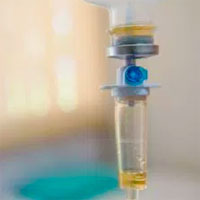Tag: vasopressors

Pooled analysis of higher versus lower blood pressure targets for vasopressor therapy septic and vasodilatory shock
Targeting higher blood pressure targets may increase mortality in patients who have been treated with vasopressors for more than 6 h. Lower blood pressure targets were not associated with patient‑important adverse events... read more

Should We Manage All Septic Patients Based on a Single Definition?
It is indisputable from the biological and clinical perspectives that not all cases of sepsis are the same. On the contrary, most have great many differences, that is, different portals of entry, clinical manifestations,... read more

The EM Educator Series: Sepsis in the ED
These posts provide brief mini-cases followed by key questions to consider while working. The featured questions provide important learning points for those working with you, as well as vital items to consider in the evaluation... read more

Potentially Modifiable Risk Factors for Long-Term Cognitive Impairment After Critical Illness
Long-term cognitive impairment is common in survivors of critical illness. Little is known about the etiology of this serious complication. We sought to summarize current scientific knowledge about potentially modifiable... read more

FDA Approves Angiotensin-II for Septic Shock
The FDA approved angiotensin-II (Giapreza) as a new intravenous vasopressor for septic shock and other forms of distributive shock. The first new FDA-approved vasopressor in decades, angiotensin-II could significantly change... read more




